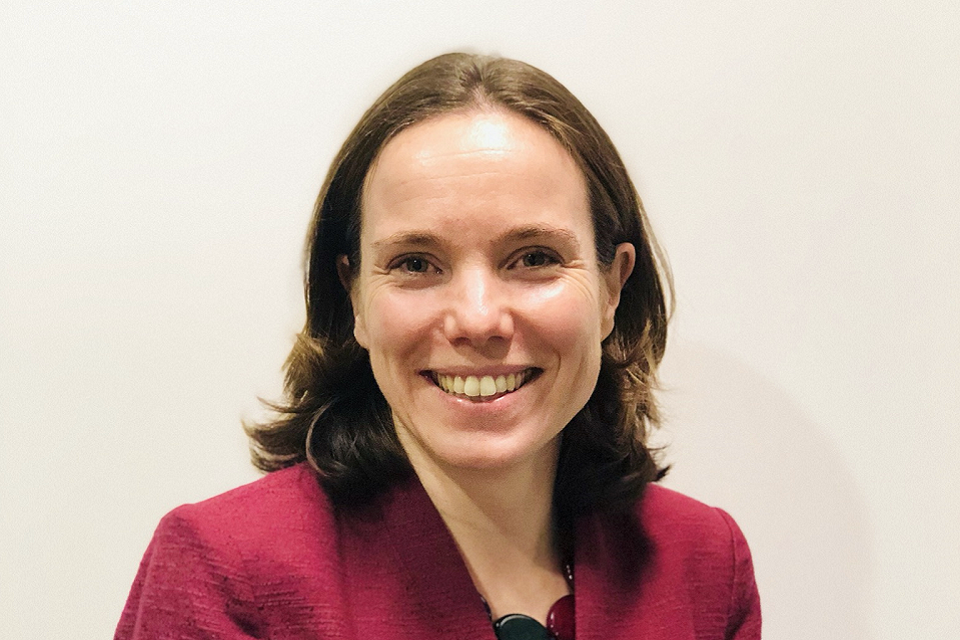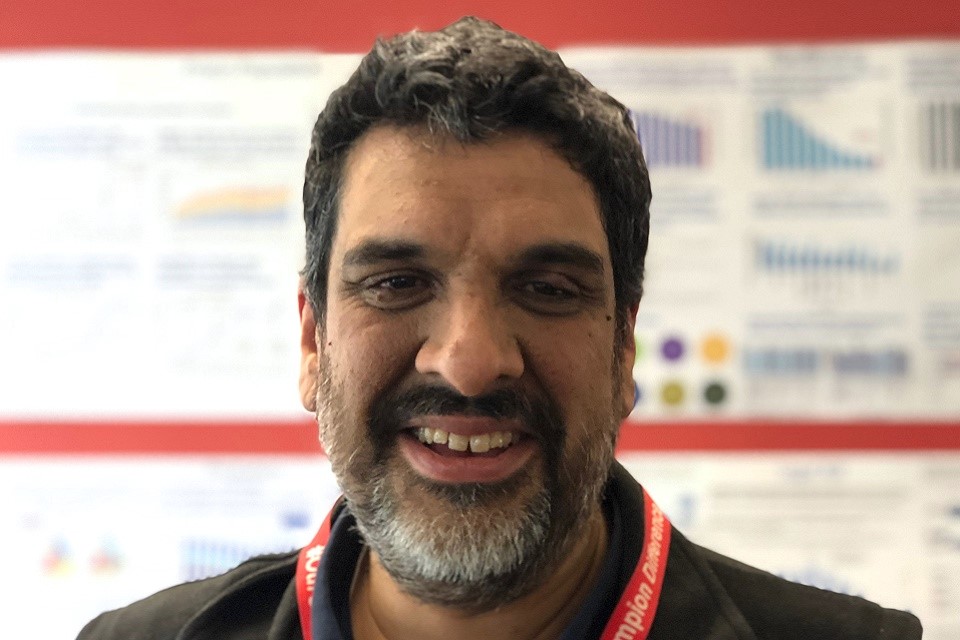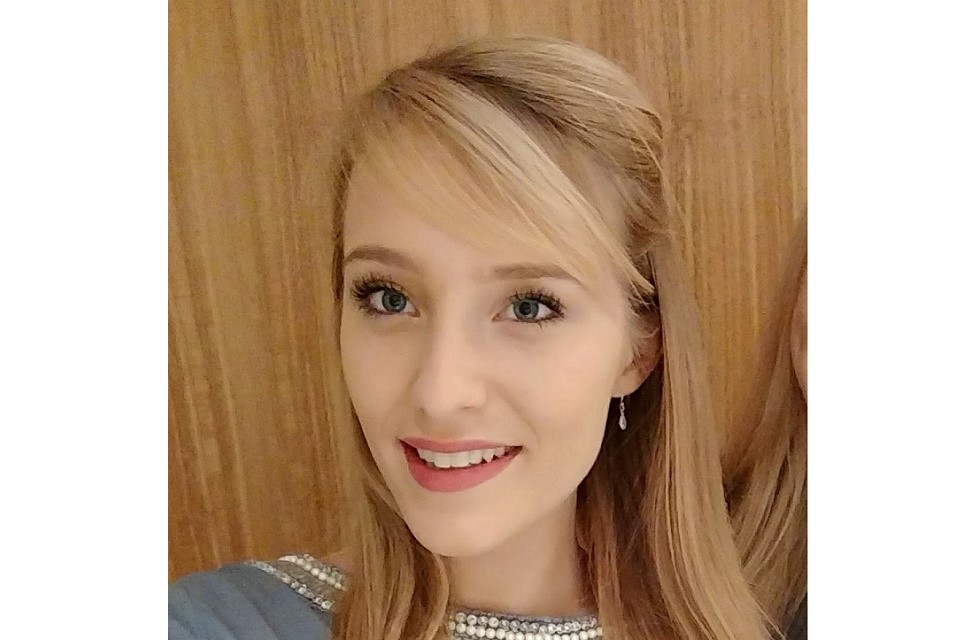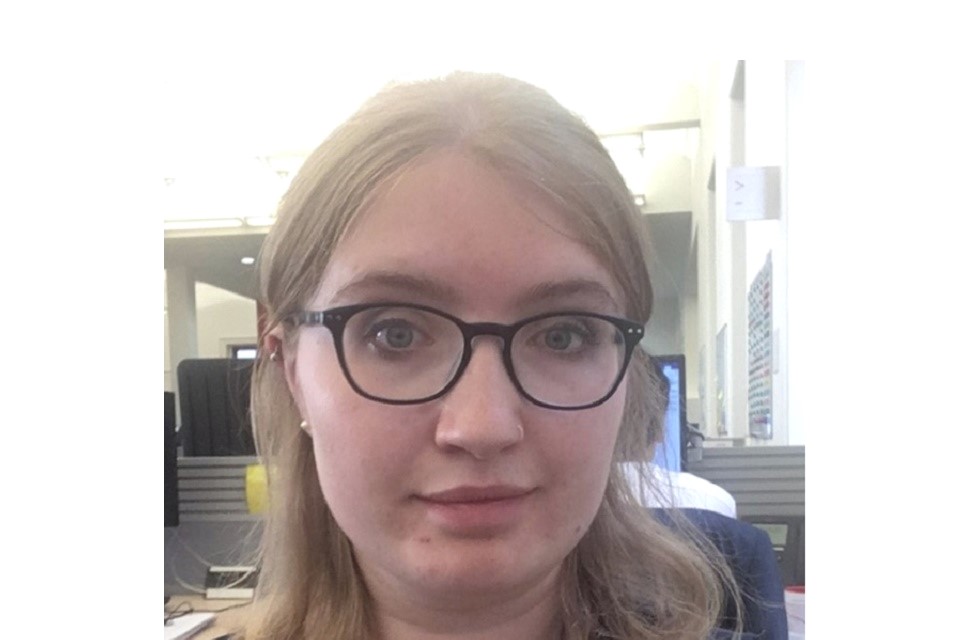Meet the GES GiG committee and our economists
Updated 30 July 2020
More information on the committee
Words from the committee: “We are co leading the Gender in the GES initiative because the economics profession in government and more widely, is lagging behind the wider civil service and other professions in gender diversity. The evidence is clear that diverse teams get better outcomes and diversity of approach and experience is as true for economic analysis and advice as for all of the other work of the civil service. We are working collaboratively to attract and retain more women to careers in economics”
Jenny Bates, Director, EU Exit and Economic Partnerships, Department for Business, Energy and Industrial Strategy (BEIS)

Jenny Bates
Jenny has been a member of the Government Economics Service (GES) since 2001 and is co-leading a new initiative to improve gender diversity in the economics profession in government.
Prior to taking up her current role, Jenny was Chief Economist and Director of Analysis in BEIS. In this role, she was responsible for analysis of the UK economy and productivity, advice on the value for money of departmental spending and the economic impact of regulations, as well as developing the longer term evidence base around policies to support growth and productivity.
Prior to joining what was then BIS, Jenny was Head of Secretariat for the Smith Commission on devolution of further powers to Scotland and spent twelve years in HM Treasury and the Foreign and Commonwealth Office (FCO) working on a range of economic policy issues including the US and global economy, international development and climate change, energy markets and tax policy. Jenny has an MA in International Relations from the School of Advanced International Studies at Johns Hopkins University (Washington DC, USA) and a BA in Economics from Cambridge University.
Osama Rahman, Director of Analysis and Chief Scientific Adviser, Department for Education (DfE)

Osama Rahman
Before joining the DfE, Osama spent 14 and a half years at the Ministry of Justice (MoJ) including the Department for Constitutional Affairs (DCA) before the creation of the MoJ. His most recent role was Director for Analytical Services and Chief Scientific Adviser for 3 and a half years. Prior to that he was the DCA’s/MoJ’s Chief Economist for 8 and a half years and has been a member of the Government Economic Service (GES) since 2003.He worked at the Civil Aviation Authority for a year on airports regulation, having spent 10 years as a lecturer and senior lecturer in economics at various UK universities.
He has a B.Sc. in Economics with Minors in Mathematics and Computer Science from the University of Minnesota (Minneapolis, Minnesota, USA), and M.A. in Economics from Northwestern University (Evanston, Illinois, USA).
At DfE, Osama is responsible for: the provision of analytical and scientific advice to ministers and senior officials, ensuring that the department’s policies and decisions are informed by the best analytical and scientific evidence; leading the department’s analytical and scientific community; working with the wider networks of directors of analysis, Government Economic Service board members, and chief scientific advisers to address cross-departmental issues; and leading on the department’s relationship with external researchers and scientists.
Osama was born in the UK, his parents (both of whom are doctors) having moved to the UK from Bangladesh in the late 1960s. He considers Salford and Bangladesh ‘home’, is a Salford Red, a fan of the Bangladesh Tigers, has a large soft spot for Nigeria’s Super Eagles having lived in Jos, Nigeria for 7 years (from age 10 to 17), and still considers London to be “down South” despite having lived there for the last 16 years!
Vanessa MacDougall, Director Economics and Deputy Chief Economic Adviser, HM Treasury (HMT)
Vanessa has been a member of the Government Economic Service (GES) since the late 1990s, and is co-leading an initiative to improve gender diversity at all levels of the economics profession in government. Vanessa’s focus is on retention and progression of women in the GES.
Vanessa is currently Director for Economics and Deputy Chief Economic Adviser at HM Treasury. In this role, she advises Ministers on a range of economic issues, including the outlook for the UK economy and the evidence base for macroeconomic and microeconomic policy development to support UK growth and productivity. Vanessa has spent her career at the Treasury, and has extensive experience on EU and international issues, including as the first UK Director to the Asian Infrastructure Investment Bank (AIIB), and on the Boards of the European Investment Bank (EIB) and European Bank for Reconstruction and Development (EBRD). Vanessa led for the Treasury on successive UK Presidencies of the G7/G8 and the G20 Presidency in 2009 that led the international response to the financial crisis. Earlier in her career, Vanessa worked on a range of economic policy issues, including legislative reforms to make statistics more independent, and the five tests for euro membership.
Vanessa has an MSc in Economics from the University of Warwick, and a BA (Hons) in Economics and Econometrics from the University of Nottingham.
Meet some of our economists
Women in Economics: Jenny Bates on the GES
Women in Economics: Urvrashi offers her advice about applying to the GES
Women in Economics: Running Across America
Women in Economics: What you don’t know about Matilda and Gbemi
Blog posts
Matilda Buchan, Assistant Economist, Home Office

Matilda Buchan, Home Office
- Please outline your job, how long you’ve been in the role and what you do
I am an Assistant Economist in the Home Office. For 9 months I have been working in the Border Force Economics team. There is great breadth to my work; my tasks range from carrying out economic analysis and model building to conducting research and writing business cases. I have also been involved in cooperate roles such as mentoring a summer intern and supporting the learning and development of my wider team.
- How would you describe the GES in 3 words?
Interesting, challenging and rewarding.
- Why do you think diversity in the GES is so important?
The decisions made by the government affect millions of people within the UK and throughout the rest of the world. Therefore, it is crucial that civil servants come from a variety of backgrounds, whether in terms of gender, race, social class and so on. Having a diverse workforce ensures that government policy is creative, progressive and reflects the interests of people from all walks of life.
- What do you enjoy the most about your role?
I love that I have a great deal of autonomy over my work. I liaise with programme teams and my manager to set work objectives and then I am given the freedom to decide the best way to achieve these goals. This allows me to think creatively and to continuously learn new skills and analytical techniques.
I am also pleased that my job has made me become more engaged in politics. It’s fascinating to see news stories about my department and work area almost every day.
Rebecca Hardy, Assistant Economist, Home Office

Rebecca Hardy, Home Office
- Please outline your job, how long you’ve been in the role and what you do
I work in the Police and Police funding team in the Home Office. I started in September 2017, and have been in the role almost a year. My main role is to answer questions on the police pay bill, and provide analytical support to discussions around police pay rises. To do this, I use a pre-existing model, and do off-model calculations where necessary. I also work on other policing related analytical work, such as writing impact assessments for new policies, or analysing data on police spending and outcomes of crimes.
- What is the best piece of career advice you’ve received?
The best piece of career advice I’ve received is to challenge yourself constantly. If things are starting to feel easy, it’s a good sign that you’re coming up to the point where you should try something new.
- What advice would you give to an Economics student wanting to apply for the GES?
Make sure to prepare thoroughly before any part of the application process. There’s loads of information online, and it’s much easier to pass if you know what they’re looking for.
- What would you be doing if you weren’t an economist?
My parents both did law, so anything but that!
- What is it like being a woman in the GES?
In my team, I am the only woman out of eight economists (which is unusually male heavy). However, I haven’t noticed any differential treatment because of my gender. At most, I have once or twice called out someone talking down to me. The civil service and GES is female-friendly once you’re in – the big problem currently seems to be getting enough women in the door in the first place.
A day in the life of……
Gbemi Babalola, Assistant Economist, Department of Health & Social Care

Gbemi Babalola, DHSC
Morning
I arrive in the office by 8:30am and while having my morning coffee I go through my emails. I flag up anything important that requires immediate action and have a brief read of newsletter subscriptions, including Red Box, Financial Times, The King’s Fund and the Deloitte Chief Economist briefing.
Later, I’ll either have a 1:1 with my line manager or a team meeting. Here we outline our priorities for the week regarding workforce pay and capacity. This involves developing costings and understanding paybill metrics and historical trends. As the only member from the pay team in London, I assist my fellow London colleagues with any pay queries. This can be from informing on staff group average earnings, to details of a new contract.
Lunch
I like to spend my lunch break eating with colleagues or attending analytical lunchtime seminars held. There are a variety of seminars available where analysts in the department or academics from universities present their findings on a piece of work. Past topics have included the impact of long-term care on quality of life, hospital mortality and inpatient emergency admissions, the revised HM Treasury Green Book, and presentations from student analysts. Some days I take part in a lunchtime yoga class organised by HASSRA, a sports and leisure organisation available to some government departments.
Afternoon
The afternoon offers time to get stuck in with spreadsheet work once meetings are over. I also enjoy participating in various networks, including the health and wellbeing team. I attend Skype calls to discuss upcoming initiatives with colleagues around the country. If I haven’t already in the morning, I’ll write a to-do list for in order of priority for the following day. I aim to leave the office by 5pm unless there are any urgent issues.
Articles and media
https://www.bbc.co.uk/news/business-44399028
https://www.economist.com/christmas-specials/2017/12/19/women-and-economics
https://www.ft.com/content/0e5d27ba-2b61-11e8-9b4b-bc4b9f08f381
http://www.feministeconomics.org/
https://www.ft.com/content/0e5d27ba-2b61-11e8-9b4b-bc4b9f08f381 - talks about the GIG scheme with quotes from Osama Rahman and Wendy Carlin.
https://www.ubs.com/global/en/our-firm/women-in-economics.html
